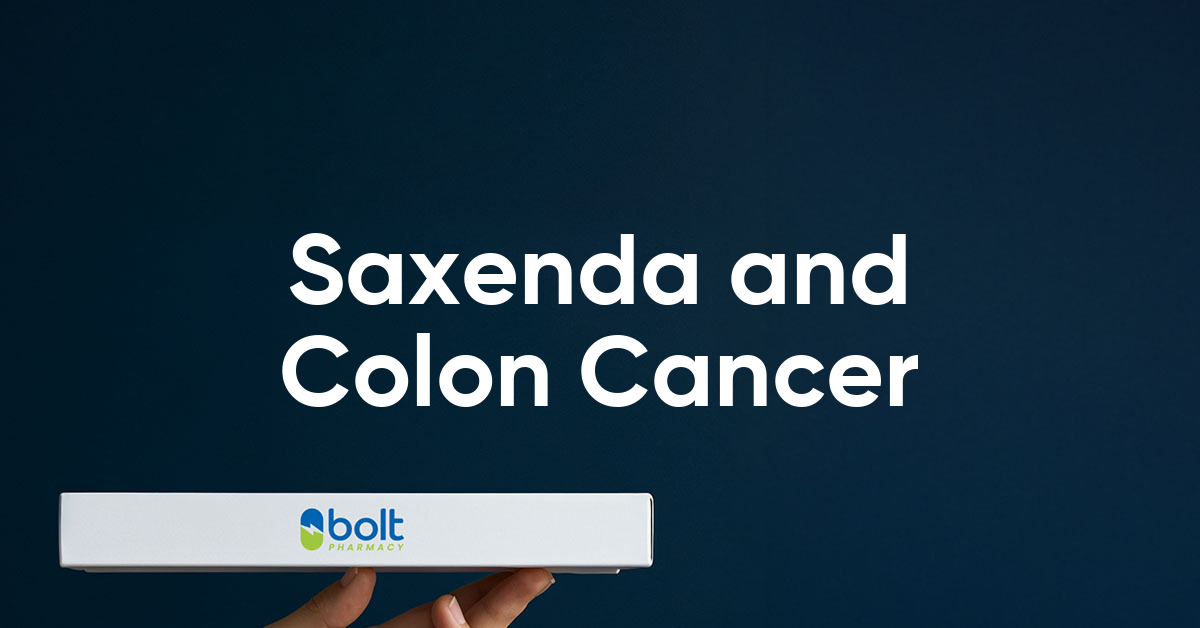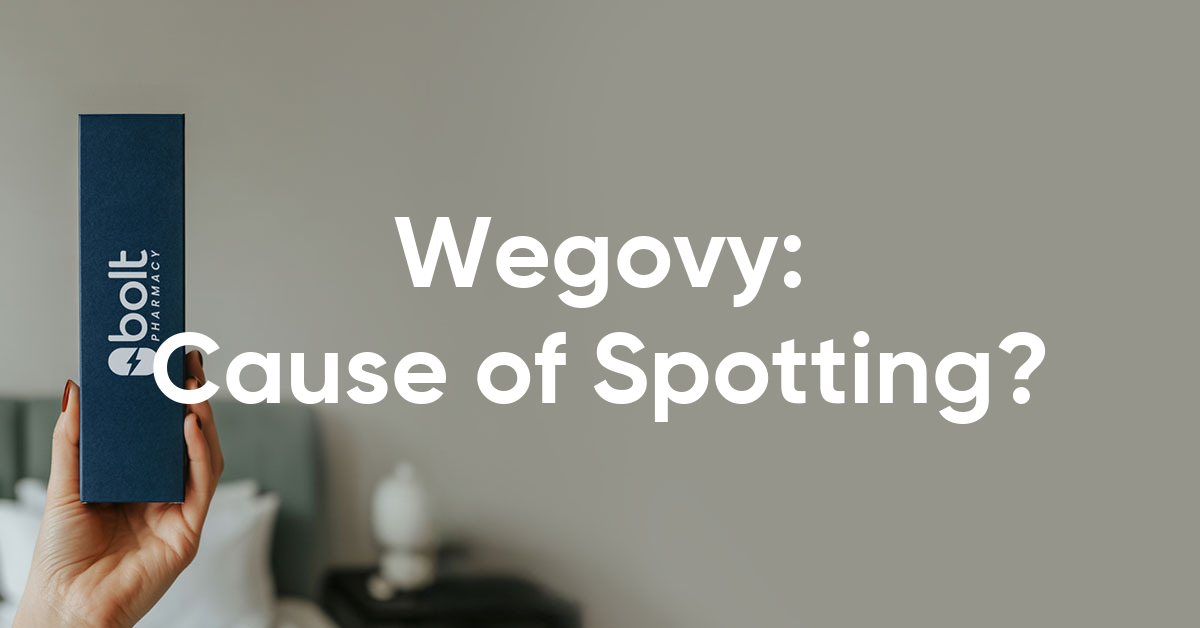Saxenda and colon cancer is a topic that understandably concerns patients considering or currently using this weight-loss medication. Saxenda (liraglutide 3.0 mg) is a GLP-1 receptor agonist licensed in the UK for weight management in adults and adolescents with obesity. Whilst obesity itself is a recognised risk factor for colorectal cancer, current evidence does not establish a causal link between Saxenda and colon cancer. This article examines the available research, regulatory guidance from the MHRA and NICE, and provides practical advice on monitoring your health whilst taking Saxenda.
Summary: Current evidence does not establish a causal link between Saxenda (liraglutide) and colon cancer.
- Saxenda is a GLP-1 receptor agonist licensed in the UK for weight management in adults and adolescents with obesity.
- Large-scale clinical trials and observational studies have found no increased risk of colorectal cancer with Saxenda compared to placebo.
- Obesity itself is a well-established independent risk factor for colorectal cancer, which can complicate risk assessment.
- The MHRA and EMA have not identified colon cancer as a specific safety concern with Saxenda based on post-marketing surveillance.
- Patients should continue routine NHS bowel cancer screening and report any persistent changes in bowel habits or unexplained symptoms to their GP.
Table of Contents
What Is Saxenda and How Does It Work?
Saxenda (liraglutide 3.0 mg) is a prescription medicine licensed in the UK for weight management in adults with obesity or those who are overweight with weight-related health conditions. It is also licensed for adolescents aged 12 to <18 years with obesity (body weight >60 kg). Saxenda belongs to a class of medications called glucagon-like peptide-1 (GLP-1) receptor agonists, which were originally developed for treating type 2 diabetes.
The active ingredient, liraglutide, works by mimicking a naturally occurring hormone called GLP-1 that is released in the gut after eating. This mechanism produces several effects that support weight loss:
-
Appetite suppression: Saxenda acts on areas of the brain that regulate hunger, helping you feel fuller for longer and reducing food cravings
-
Delayed gastric emptying: The medication slows down how quickly food leaves the stomach, prolonging feelings of satiety
-
Improved blood sugar control: It stimulates insulin secretion when blood glucose levels are elevated and reduces inappropriate glucagon release
Saxenda is administered as a once-daily subcutaneous injection using a pre-filled pen device. The dose is gradually increased over five weeks, starting at 0.6 mg daily and building up to the maintenance dose of 3.0 mg daily. This titration schedule helps minimise common gastrointestinal side effects such as nausea and vomiting.
According to the Summary of Product Characteristics (SmPC) and NICE guidance, Saxenda should only be prescribed as part of a comprehensive weight management programme that includes dietary modification, increased physical activity, and behavioural support. Treatment should be discontinued if patients do not achieve at least 5% weight loss after 12 weeks at the full 3.0 mg daily dose. Saxenda should not be used in combination with other GLP-1 receptor agonists.
Saxenda is available on the NHS in limited circumstances through specialist weight management services for patients meeting specific NICE criteria, and is also prescribed privately in the UK.
Understanding the Link Between Saxenda and Colon Cancer
Concerns about a potential connection between Saxenda and colon cancer have emerged in recent years, prompting questions from patients and healthcare professionals alike. It is important to clarify that there is no established causal link between Saxenda and colon cancer based on current evidence. However, understanding why this concern exists requires examining the broader context of GLP-1 receptor agonists and cancer risk.
The question arose partly because obesity itself is a well-established risk factor for colorectal cancer. The relationship between excess body weight and cancer is complex, involving chronic inflammation, insulin resistance, altered hormone levels, and changes in gut microbiota. When patients with obesity take weight-loss medications, distinguishing between cancer risk related to their underlying condition versus potential medication effects becomes challenging.
Regulatory bodies including the Medicines and Healthcare products Regulatory Agency (MHRA) and the European Medicines Agency (EMA) have not identified colon cancer as a specific safety concern with Saxenda. The UK SmPC for Saxenda does include a warning about C-cell tumours observed in rodent studies, but the relevance to humans is unknown. This is why the medication carries a warning rather than a contraindication regarding thyroid C-cell tumours in the UK.
Clinical trials of Saxenda did not demonstrate an increased incidence of colon cancer compared to placebo groups. However, it is worth noting that cancer typically develops over many years, and the duration of clinical trials (usually 1-3 years) may not be sufficient to detect rare long-term risks. Post-marketing surveillance continues to monitor for any emerging safety signals, including potential malignancies.

Current Research and Evidence on GLP-1 Medications and Cancer Risk
The scientific literature on GLP-1 receptor agonists and cancer risk has expanded considerably as these medications have become more widely prescribed. Large-scale observational studies and meta-analyses have generally provided reassuring data regarding colorectal cancer risk, though research continues to evolve.
A comprehensive systematic review published in recent years examined cancer incidence across multiple GLP-1 receptor agonist trials involving tens of thousands of patients. The analysis found no significant increase in overall cancer risk, including gastrointestinal malignancies, among patients treated with GLP-1 medications compared to control groups. Some studies have even suggested a potential protective effect, possibly related to weight loss and improved metabolic health, though this remains an area requiring further investigation.
The LEADER trial, a major cardiovascular outcomes study of liraglutide in patients with type 2 diabetes, included over 9,000 participants followed for several years. Cancer events were carefully monitored as a safety endpoint, and the trial found no increased risk of malignancy with liraglutide treatment. Similar findings emerged from the SCALE trials, which specifically evaluated liraglutide 3.0 mg (Saxenda) for weight management.
However, researchers acknowledge certain limitations in current evidence:
-
Most studies have relatively short follow-up periods (typically under 5 years)
-
Cancer is a rare outcome, requiring very large populations to detect small increases in risk
-
Patients taking GLP-1 medications often have multiple risk factors for cancer (obesity, diabetes, metabolic syndrome)
The NHS and NICE continue to recommend GLP-1 receptor agonists, including Saxenda, when clinically appropriate, based on the current evidence showing a favourable benefit-risk profile. NICE technology appraisal guidance outlines specific criteria for NHS use of liraglutide for weight management. Ongoing pharmacovigilance and long-term registry studies will provide additional data on cancer outcomes in the coming years.
Who Should Avoid Saxenda: Contraindications and Precautions
Whilst there is no official link between Saxenda and colon cancer, there are several important contraindications and precautions that healthcare professionals must consider before prescribing this medication. Understanding who should avoid Saxenda helps ensure patient safety and appropriate use.
According to the UK SmPC, absolute contraindications (situations where Saxenda must not be used) include:
-
Hypersensitivity to liraglutide or any excipients in the formulation
-
Pregnancy
Saxenda is not recommended for use in:
-
Breastfeeding women
-
Children under 12 years of age
-
Patients with severe gastrointestinal disease, including severe gastroparesis
-
Patients with inflammatory bowel disease, as there is limited experience in this population
-
Patients using other GLP-1 receptor agonists concurrently
Saxenda should be used with caution in patients with:
-
Pancreatitis history, as GLP-1 receptor agonists have been associated with acute pancreatitis in rare cases
-
Severe renal or hepatic impairment, where limited safety data exist and there is increased risk of dehydration from gastrointestinal side effects
-
Concurrent use of insulin or insulin secretagogues (such as sulfonylureas), which may increase hypoglycaemia risk; dose adjustments of these medications may be needed
Patients over 75 years of age should be prescribed Saxenda with caution, as clinical experience in this age group is limited.
Before starting Saxenda, healthcare professionals should conduct a thorough medical history and consider whether patients have risk factors that might make alternative weight management strategies more appropriate. This includes assessing for eating disorders, depression, or suicidal ideation, as weight-loss medications may not be suitable in these contexts. Regular review and monitoring are essential to ensure ongoing appropriateness of treatment.
Monitoring Your Health While Taking Saxenda
If you have been prescribed Saxenda, regular monitoring and open communication with your healthcare team are essential for safe and effective treatment. Whilst concerns about colon cancer specifically are not supported by current evidence, being vigilant about your overall health remains important.
Routine monitoring while taking Saxenda should include:
-
Weight and BMI measurements at regular intervals (typically monthly initially, then every 3 months)
-
Blood glucose monitoring if you have diabetes or prediabetes
-
Blood pressure checks, as weight loss can affect cardiovascular parameters
-
Review of gastrointestinal symptoms, particularly nausea, vomiting, diarrhoea, or constipation
-
Assessment of treatment response at 12 weeks to determine whether to continue therapy
When to contact your GP or healthcare provider urgently:
-
Severe, persistent abdominal pain that may radiate to the back (potential sign of pancreatitis) – Saxenda should be discontinued immediately if pancreatitis is suspected
-
Unexplained weight loss beyond what is expected, or loss of appetite
-
Changes in bowel habits lasting more than 3 weeks, particularly if you are aged 40 or over
-
Blood in your stools or bleeding from your bottom
-
Unexplained iron deficiency anaemia, especially if you are aged 60 or over
-
Abdominal pain and weight loss, particularly if you are aged 40 or over
-
Signs of dehydration from persistent vomiting or diarrhoea
-
Symptoms of gallbladder disease, including pain in the upper right abdomen, particularly after eating
It is important to note that routine cancer screening programmes should be continued as normal whilst taking Saxenda. The NHS Bowel Cancer Screening Programme invites adults aged 50-74 in England (with ongoing expansion from the previous 60-74 age range), and similar programmes exist across the UK. These screening programmes are designed to detect colorectal cancer early, when treatment is most effective.
Maintaining a healthy lifestyle alongside Saxenda treatment—including a balanced diet rich in fibre, regular physical activity, limiting alcohol consumption, and avoiding smoking—supports both weight management goals and overall cancer prevention.
If you experience any side effects while taking Saxenda, you can report them through the MHRA Yellow Card scheme (yellowcard.mhra.gov.uk), which helps monitor medication safety. If you have any concerns about your health whilst taking Saxenda, do not hesitate to discuss them with your healthcare provider.
Frequently Asked Questions
Does Saxenda increase the risk of colon cancer?
No, current evidence from clinical trials and observational studies does not show an increased risk of colon cancer with Saxenda. The MHRA and EMA have not identified colon cancer as a specific safety concern with this medication.
Should I continue bowel cancer screening whilst taking Saxenda?
Yes, you should continue with routine NHS bowel cancer screening programmes as normal whilst taking Saxenda. These screening programmes are designed to detect colorectal cancer early, when treatment is most effective.
What symptoms should I report to my GP whilst taking Saxenda?
Contact your GP urgently if you experience persistent changes in bowel habits lasting more than 3 weeks, blood in your stools, unexplained weight loss, abdominal pain with weight loss, or unexplained iron deficiency anaemia, particularly if you are aged 40 or over.
The health-related content published on this site is based on credible scientific sources and is periodically reviewed to ensure accuracy and relevance. Although we aim to reflect the most current medical knowledge, the material is meant for general education and awareness only.
The information on this site is not a substitute for professional medical advice. For any health concerns, please speak with a qualified medical professional. By using this information, you acknowledge responsibility for any decisions made and understand we are not liable for any consequences that may result.
Heading 1
Heading 2
Heading 3
Heading 4
Heading 5
Heading 6
Lorem ipsum dolor sit amet, consectetur adipiscing elit, sed do eiusmod tempor incididunt ut labore et dolore magna aliqua. Ut enim ad minim veniam, quis nostrud exercitation ullamco laboris nisi ut aliquip ex ea commodo consequat. Duis aute irure dolor in reprehenderit in voluptate velit esse cillum dolore eu fugiat nulla pariatur.
Block quote
Ordered list
- Item 1
- Item 2
- Item 3
Unordered list
- Item A
- Item B
- Item C
Bold text
Emphasis
Superscript
Subscript










